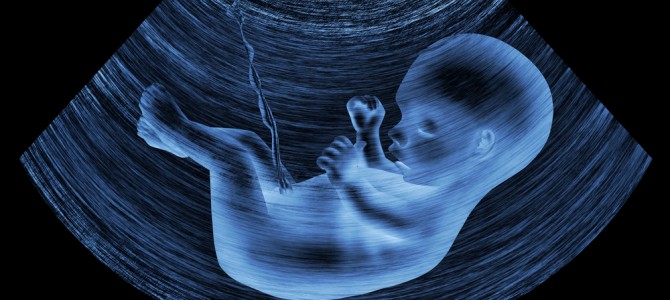
When the Daily Caller and various other news agencies reported that presidential hopeful Hillary Clinton told women at the sixth annual Women in the World Summit that “deep-seated” and “religious beliefs” would have to change to give women better access to reproductive health care, the evangelical Christian community was quick to respond.
They know “reproductive health care” is sanitized language for, among other things, abortion. So it’s not at all surprising the Christian response to Clinton’s assertion was outrage and disgust. Conventional wisdom holds that those who have deep-seated religious beliefs about the sanctity of life are not going to simply “change” them to make way for more abortion. There are two assumptions at play here: first, evangelicals are overwhelmingly pro-life and, second, evangelicals will behave accordingly.
So when Christians take offense at the suggestion that deeply held religious beliefs must change so that women can access abortion, they may be failing to appreciate the tenuous nature of their pro-life hegemony. Not only is Clinton’s suggestion not absurd, recent history tells us it’s completely plausible.
Evangelicals Trail the Culture at Large
The last six years has been a disaster for the evangelicals in this country. Religious freedom has never been under more scrutiny, nor has it ever been more acceptable to personally attack Christians and their livelihoods for their beliefs. There is no longer any institutional refuge for the religious.
It is not at all surprising, then, that significant numbers of Christians have learned to adapt as a result. Nowhere is this more apparent than the same-sex marriage debate. Christians cannot ignore the stable numbers in polls showing support for gay marriage among young evangelicals. According to Time magazine, young evangelicals’ support for gay marriage has gone from 20 percent in 2003 to 43 percent in 2014.
Even prominent religious leaders who are opposed to gay marriage have curtailed their public presence on the issue, or have elected to remain silent altogether. This shift doesn’t just represent a fundamental change in the way evangelicals interact with our culture, it represents a fundamental change in the way they interpret the Bible.
Ten years ago, the same-sex marriage debate was a non-starter issue among Christians. Today we have Christians openly supporting gay marriage, and some even arguing homosexuality isn’t a sin. Again, this is significant, and this didn’t happen in a vacuum. As the culture continues to move to the Left, certain numbers of evangelicals will adapt and move Left with it. All that has to happen to syphon off Christians to the pro-abortion cause is more of the same—open hostility for any Christian espousing the stance that life begins at conception and aborting that life is murder.
Christians Take Exception to Abortion Bans
The terms Christian and pro-life are inextricably linked; one presupposes the other. This link suggests a strong cause and effect relationship, when in fact it may just be corollary. A Quinnipiac poll found that 23 percent of “born-again” Christians support making abortion illegal in all cases, and 36 percent support making abortion illegal in most cases. This means roughly 77 percent of people who subscribe to a biblical understanding of when life begins agree it’s okay to take that life under certain circumstances.
If 77 percent of “born-again” Christians aren’t in an existential crisis over killing the unborn, how far-fetched is it to conceive of a time when Christians might even argue abortion isn’t murder? I submit, not that far-fetched. Even Planned Parenthood has a Pastoral Letter to Patients.
Hillary Clinton’s suggestion to the Women in the World audience has caused a strong counter-reaction among evangelicals, and there is incredible value in this. It helps reinforce what the deeply religious, pro-life movement believes, and it unites them against a common cause. My hope is that profoundly religious people will recognize what candidate Clinton’s suggestion portends. My fear is that the profoundly religious will acquiesce, because they have done so before.









